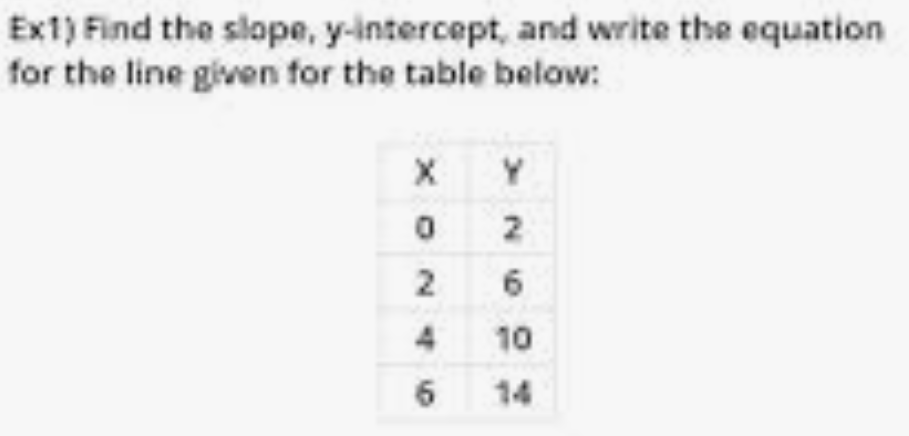What does common difference mean?
How the subsequent y values change by addition or subtraction.
What is the common difference for the following table?
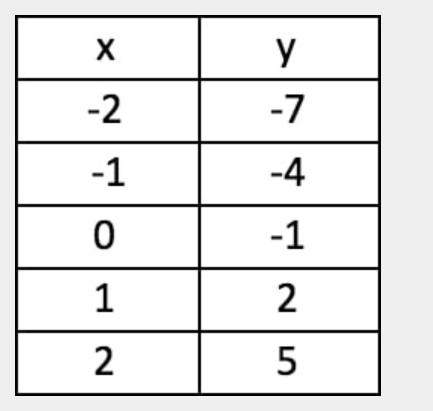
CD : 3
What is the constant ratio for the following table of values?
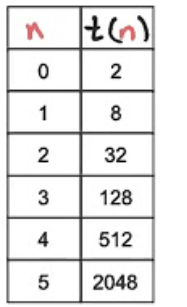
Constant Ratio: 4
Which equation shows an exponential function with a y intercept of 2 and a common ratio of 4?
a. y=2x+4
b. y=4x+2
c. y=2(4)x
d. y=4(2)x
What is c?
What is the y intercept of the following equation :
y=2x+10
What is 10?
Is the following equation for linear or exponential function? Y=mx+b
Linear
What is the common difference for the following :
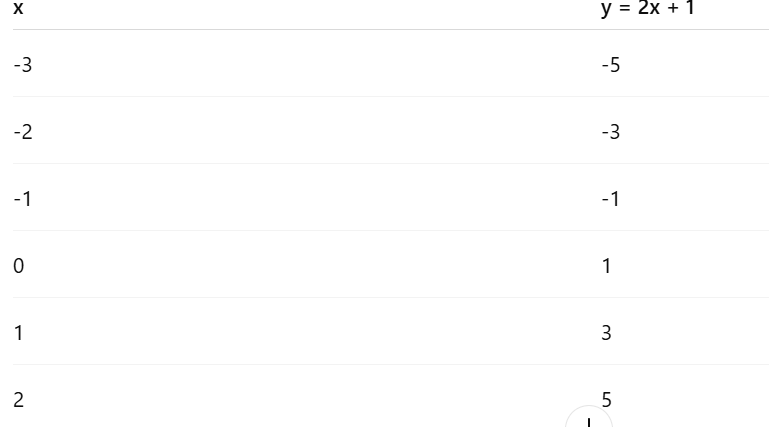
2
What is the next value in the sequence?
1,3,9,_?
What is 27?
If the Constant ratio is 3 and the y intercept is 5 what would be the exponential equation?
Y=5(3)x
The y value when x = 0
B represents the constant ratio
What is the y intercept for the following linear function?
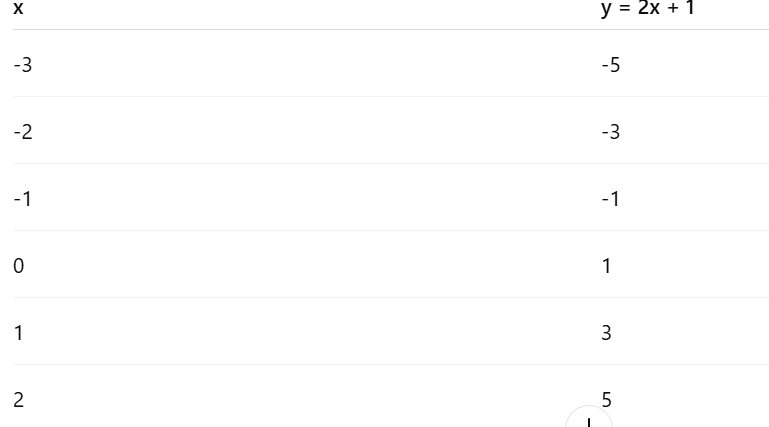
1
What is the next value in the arithmetic sequence?
-10,-8,-6, _ ?
-4
Is the following equation linear or exponential?
Y=3x+5
Linear *Double Points*
True / False : It is impossible to have a y intercept of 0
False
What does the variable "A" represent in the following exponential equation? Y=A(B)x
A represents the y intercept
Is this function increasing or decreasing?

Decreasing
What is the constant ratio for the following sequence?
100 , 50 , 25, 12.5...
1/2 or 0.5
Does the following table represent an exponential function?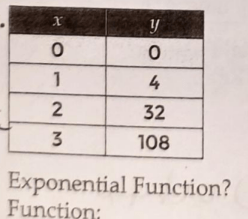
No, the ratios aren't constant.
If a line crosses at the origin what would the y-intercept be?
0
If the ratio between subsequent y values is the same what must be true about the table?
It is an exponential function.
The common difference is : 
-5
If the constant ratio is greater than 1 will your function increase or decrease?
Increase
The common difference is -3 and the y intercept is 10. What is the equation?
A. y=3x+10
B. y=-3x+10
C. y=3/10x -3
What is B?
